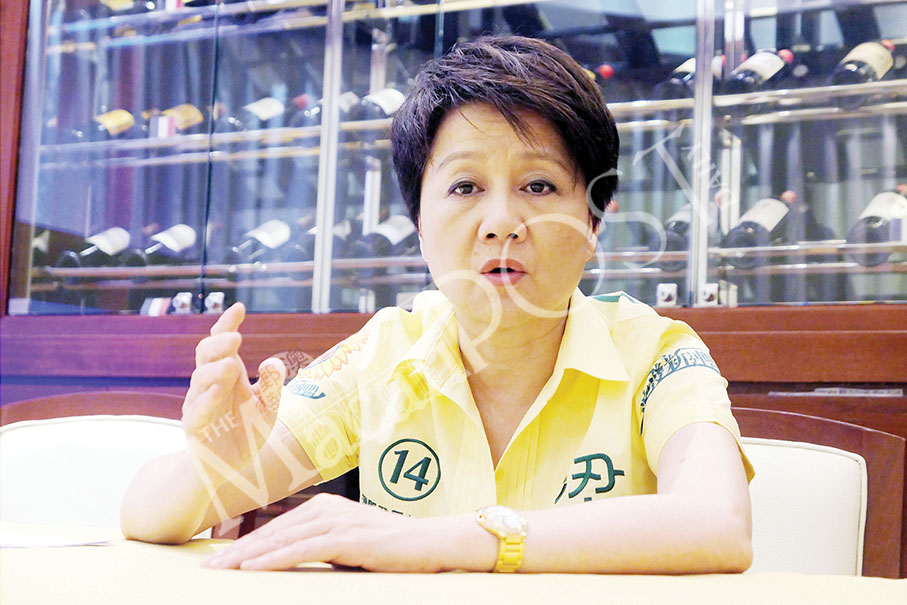Editorial
“Give Peace a Chance” is one of the world’s most iconic anti-war songs. Written by John Lennon and released in 1969 it quickly became the anthem of the anti-Vietnam War movement.
The song raised international awareness of the tragic futility of the Vietnam War which exacted an enormous human cost – its estimated death toll ranges between 1.4 million and 3.8 million. Despite its name, the Vietnam War also laid waste to large parts of Cambodia and Laos. US combat troops withdrew from South Vietnam after peace talks in 1973 but the war finally ended only in 1975, resulting in the reunification of Vietnam a year later. The Vietnam War remains a traumatic experience for Vietnam, the US and over a dozen other belligerents.
Lennon was murdered in New York City in 1980.
Unfortunately, also in the 21st century, Lennon’s song remains as topical as ever. The first 22 years of the new millennium have seen an astonishing raft of armed conflicts including civil wars involving rival outside powers and major wars such as – just to name a few – the War in Afghanistan, Iraq War, Second Lebanon War, Syrian Civil War, Libyan Crisis, War in Donbas, Gaza War, Yemeni Civil War, and Russia’s “special military operation” in Ukraine.
Many of the armed conflicts in the 21st century have directly or indirectly been interfered with by third parties, resulting in violations of territorial integrity and sovereignty. As always, innocent civilians and young recruits have been the main victims.
Wars are often triggered by historical grievances and the perception that one’s own legitimate security interests have been breached and red lines have been crossed.
Able leaders try their utmost to avoid and prevent the outbreak of a war by detecting powder kegs waiting for a spark, pro-actively taking remedial action and accepting the fact that politics is the art of the possible. The idea probably dates back to antiquity, but it is generally associated with Germany’s “realpolitik” statesman Otto von Bismarck who famously said that “politics is the art of the possible, the attainable – the art of the next best.”
Of course, politics – ultimately involving the existential question of war and peace – is always a huge challenge. Albert Einstein (1879-1955) – who would probably have loved to hear Lennon’s peace song – famously said that “politics is more difficult than physics.” That’s why, I guess, he rejected Israel’s offer in 1952 to become their country’s second president.
China’s military theorist Sun Tzu (544-496 BC) noted that war drains resources and, consequently, should be minimised as much as possible. Therefore, any war should be as short as possible.
One more reason why the fighting in Ukraine should be brought to an end as soon as possible. While Russia’s “special military operation” started a year ago, the conflict does actually go back to 2014.
Ukraine crisis political settlement position paper
China formally announced its “Position on the Political Settlement of the Ukraine Crisis” on Friday, coinciding with the first anniversary of Moscow’s “special military operation”. The 12-point position paper* is a reasonable effort to give peace a chance by listing a dozen recommendations, namely: respecting the sovereignty of all countries, abandoning the Cold War mentality, ceasing hostilities, resuming peace talks, resolving the humanitarian crisis, protecting civilians and prisoners of war, keeping nuclear power plants safe, reducing strategic risks, facilitating grain exports, stopping unilateral sanctions, keeping industrial and supply chains stable, and promoting post-conflict reconstruction.
The paper stresses, quite rightly, that “the legitimate security interests and concerns of all countries must be taken seriously and addressed properly”. It also emphasises that “nuclear weapons must not be used and nuclear wars must not be fought” and reaffirms that “China opposes unilateral sanctions unauthorised by the UN Security Council.”
Unlike some Western leaders’ cool response, Ukrainian President Volodymyr Zelensky has cautiously welcomed the 12-point peace plan put forward by Beijing. He stressed at a press conference in Kyiv on Friday that the plan was “not bad”, adding that there were points in the Chinese proposals that he agreed with and “those that we don’t.” Zelensky also said, “I am planning to meet with [President] Xi Jinping,” adding, “This will be important for world security.”
And UN Secretary-General António Guterres, who knows China better than other world leaders because of his involvement in Macau’s transition period in the run-up to its reversion to Chinese administration in 1999, has welcomed China’s position paper through his spokesman Stéphane Dujarric.
“I think the plan put forward by the Chinese government is an important contribution,” Dujarric told a regular press briefing on Friday, adding, “I think the call on the need to avoid the use of nuclear weapons is particularly important”.
Let’s hope that the West – Washington and Brussels (where both the EU and NATO are headquartered) in particular – have a second look at Beijing’s peace plan.
Global Security Initiative Concept Paper
The position paper did not come out of the blue, not at all. The Foreign Ministry in Beijing released the Central People’s Government’s “Global Security Initiative Concept Paper”** on Tuesday last week that already expressed China’s determination to “support [the] political settlement of hotspot issues such as the Ukraine crisis through dialogue and negotiation.”
The detailed concept paper – a total of 3,480 words in the English version – starts by pointing out that “the issue of security bears on the well-being of people of all countries, the lofty cause of world peace and development, and the future of humanity.”
It also reaffirms six core concepts and principles, among them to “stay committed to respecting the sovereignty and territorial integrity of all countries.” This, of course, includes Ukraine and China (consisting of the mainland, Taiwan, Hong Kong, and Macau).
It also expresses support for the ASEAN-centred regional security cooperation mechanism and architecture, as well as regional peace efforts by African, Latin American, Caribbean and Middle Eastern countries. It also mentions China’s willingness to leverage the roles of the Shanghai Cooperation Organisation (SCO) and BRICS cooperation mechanism.
I would like to see some of the BRICS (Brazil, Russia, India, China and South Africa) members to play a more active role in tackling the Ukraine conflict. Brazilian President Luiz Inácio Lula da Silva, for instance, enjoys the necessary international respect to get involved in the peace efforts.
Besides, BRICS will possibly expand its membership by adding countries such as Türkiye (Turkey’s new official name in English), Saudi Arabia, Egypt and Indonesia in the near future. It already represents some 40 percent of humanity, and with its likely enlargement (let’s call it BRICS+) more than half of the world’s eight billion inhabitants would come under its umbrella.
The Ukraine bloodshed must be brought to an end through diplomatic efforts as quickly as possible, requiring willingness to compromise by both sides, so that world leaders can finally work together again, free of ideological shackles, to get to grips with the world’s most pressing issues such as climate-friendly development, poverty alleviation (Xi and his Brazilian counterpart are world champions on this front), international migration flows, and the prevention of epidemics and other global health threats, just to mention a few.
– Harald Brüning
**https://www.fmprc.gov.cn/mfa_eng/wjbxw/202302/t20230221_11028348.html









